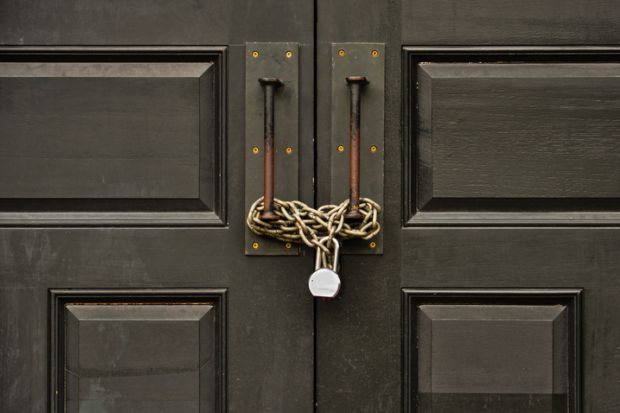A second wave of coronavirus cases across continental Europe has forced several countries to drastically scale back face-to-face teaching to prevent infections.
In France, which has shut down restaurants, bars and “non-essential” shops, university teaching will shift online, with an exemption for practical work. This contrasts with French schools, which, unlike in the spring, will remain open.
At the beginning of the academic year, despite safety precautions, French universities have become hotspots of infection, with some students complaining of packed lecture halls.
By late September, public health authorities were already blaming schools and universities for seeding a large chunk of new infection clusters.
Earlier this week, French universities pleaded with the government not to end face-to-face contact on campus, suggesting instead a further reduction in lecture hall capacity – but seemingly to no avail.
France’s Conference of University Presidents has warned that a complete shutdown of campuses risks mass dropouts and social isolation of students, particularly those who are “fragile”.
In Germany, the federal lockdown agreed on 28 October – which, like in France, also excludes schools − does not directly address universities, although the state of Berlin has ordered universities to shift teaching online where possible.
But German universities were already planning to teach largely online this winter, and many students still have not started their studies because of a delay to the academic year.
“Universities feel encouraged in their preventative planning and will probably expand the portion of digital lectures as much as possible,” a spokeswoman for the German Rectors’ Conference said. “The universities, like private companies, will enable their administrative staff to work from home whenever possible.”
Meanwhile, in Belgium, Europe’s worst-hit major country, several universities have activated “code red” plans, upping the amount of teaching they do online.
But some are still keen to preserve at least some physical contact, worried about the impact of isolation on students. “Especially for our first-year students, for whom everything is new, for international students far away from home and for students in vulnerable situations, we will try to facilitate social contact,” the Vrije Universiteit Brussel, a research university in Brussels, said in a statement.
In Switzerland, universities will be banned from face-to-face teaching from 2 November, although there is an exception for individual lessons and classes deemed to require physical presence.
Still, despite cases spiking practically everywhere, there is not yet the same blanket policy of shutdowns as was seen in the spring.
In Italy, the universities and research minister, Gaetano Manfredi, has stressed that there will be no national campus shutdown, with restrictions decided on a region-by-region basis. He has also sought to play down the number of infections occurring in universities.
At the University of Bologna, for example, students will still be taught through a mixture of online and physical classes, using an app to regulate the face-to-face attendance numbers, explained a spokesman. Some regions of Italy, including Lombardy, Campania and Lazio, have introduced new restrictions on universities, but nothing yet has been applied to Bologna, he said.
And in the Netherlands, universities are continuing to operate at about 30 per cent capacity, as they have done from the beginning of the academic year, although there is always the risk campuses could be caught up in tightening restrictions.
Register to continue
Why register?
- Registration is free and only takes a moment
- Once registered, you can read 3 articles a month
- Sign up for our newsletter
Subscribe
Or subscribe for unlimited access to:
- Unlimited access to news, views, insights & reviews
- Digital editions
- Digital access to THE’s university and college rankings analysis
Already registered or a current subscriber?







